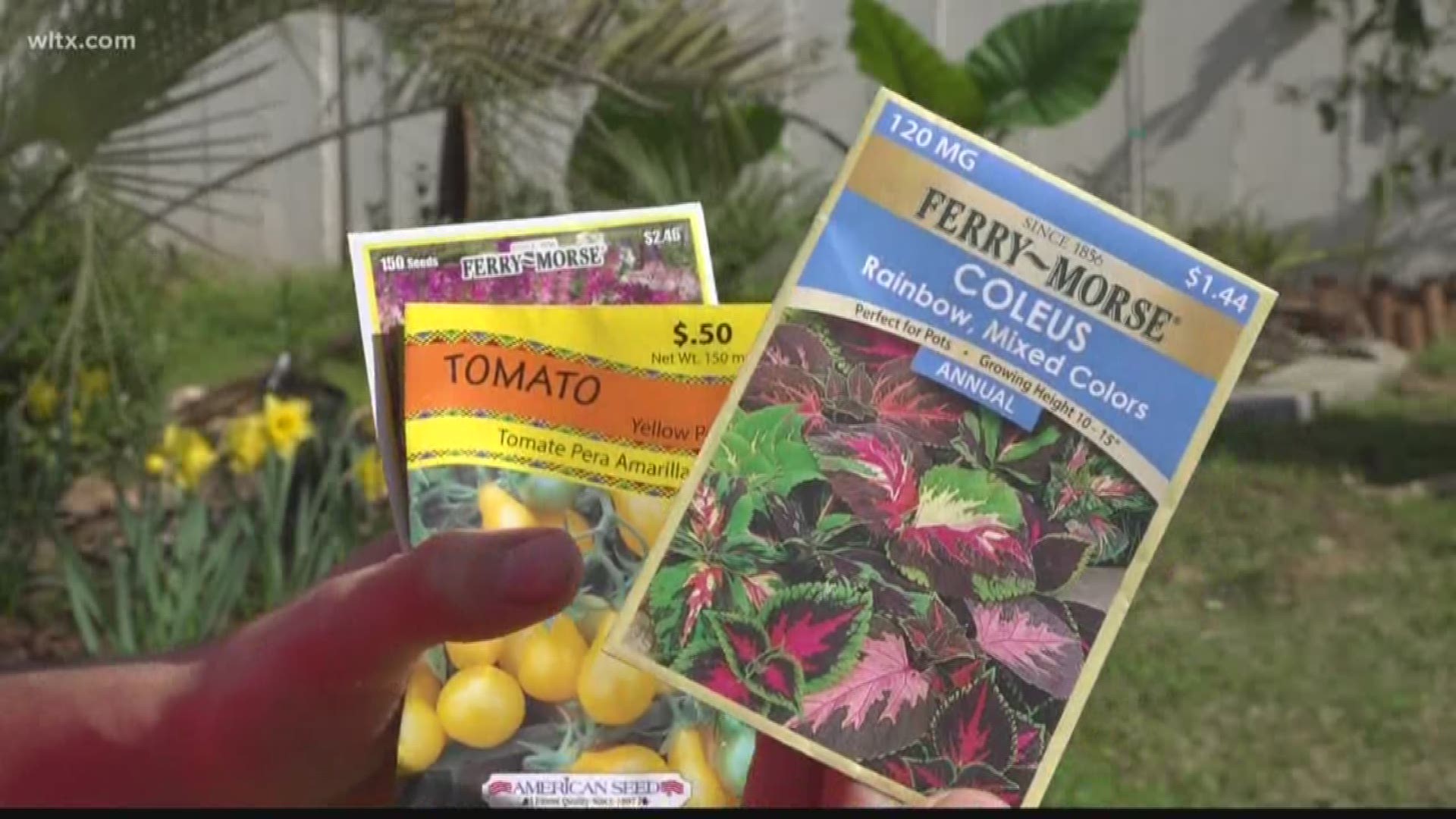COLUMBIA, S.C. — It's the first full week of spring, and for those of us looking to keep our minds off the world news (or keep kids busy during their extra time away from school), planting seeds is the perfect activity. Early spring is the right time to plant a variety of seeds in the South Carolina Midlands. Temperatures aren't too hot yet, and our soil is still saturated from the heavy rain we received through Winter 2019-2020.
What to plant?
The answer to this question depends on the person. The smaller the kid, the bigger the seeds. Squash, sunflowers, and beans are a great choice. For the rest of us, it's important to pay attention to the climate restrictions of certain plants.
In Gandy's Garden, we sowed peas, spinach, broccoli, and arugula during the winter months. These plants grow best in cool and wet weather. Typically, warm weather forces winter crops to bloom which ruins the flavor and texture of the leafy greens.
In mid March, given the warm weather, I decided to sow tomato, squash, and sunflower seeds in Gandy's Garden. Tomatoes take a long time to mature and struggle to produce during our extreme summer heat, but are certainly worth trying to sow directly in the ground this time of the year. Sunflowers are perfect to germinate in March. They are quick growers and will bring giant flowers that attract pollinators and wonder from kids and adults alike!
How to deal with seeds
Personally, I soak seeds in water for a brief period of time to let the seeds know they're entering a favorable environment for germination. Seeds are created to survive in harsh environments so they can be transported to their perfect home. That's why I find this step can quicken the process a little bit, but don't leave the seeds in water for too long.
A science lesson
If you plant seeds with the kids, keep in mind there's a great opportunity to teach a little science! All plants need water, and seeds won't germiante until there's signs of enough of them. Seeds are designed with a hard seed coat that protects the very sensitive embryo (which will eventually become a plant sprout). Surrounding the embryo is the food storage that the embryo uses to grow. If you've ever eaten sunflower seeds, you've eaten all those healthy nutrients!
The lesson plan doesn't end there. When the seeds sprout, they need more water and sunlight to grow. The green leaves are filled with chlorophyll, the chemical in plant cells that convert sunlight and carbon dioxide into sugars that the plants use as energy to grow big and strong. On warm or dry days, plant leaves may wilt. That's because the stromata (the microscopic openings under plant leaves that let moisture and carbon dioxide in) close to keep the plant from losing too much water.
Where to get seeds
If you don't have the ability to purchase seeds from a store in person or online, there are seeds from produce in the kitchen you can try in the ground. Just keep in mind results will vary! Not every seed from the fruit in the kitchen will produce true to variety. For example, if you plant a seed from a squash you purchased at the grocery store, you might end up with a totally different type of squash in your garden. It depends on what the fruit or vegetable was pollinated with before it was shipped off to the store! There are some fruits and vegetables (like grapes) that have been bred to produce seeds that are so tiny they are sterile (because who wants to chew on giant seeds?)
We'll share updates on how our seeds are progressing. Make sure you share yours too! I'm on Twitter as AlexCalamiaWx and Facebook as Alex Calamia WLTX. There's also our WLTX Weather Watchers facebook group you can join today!

